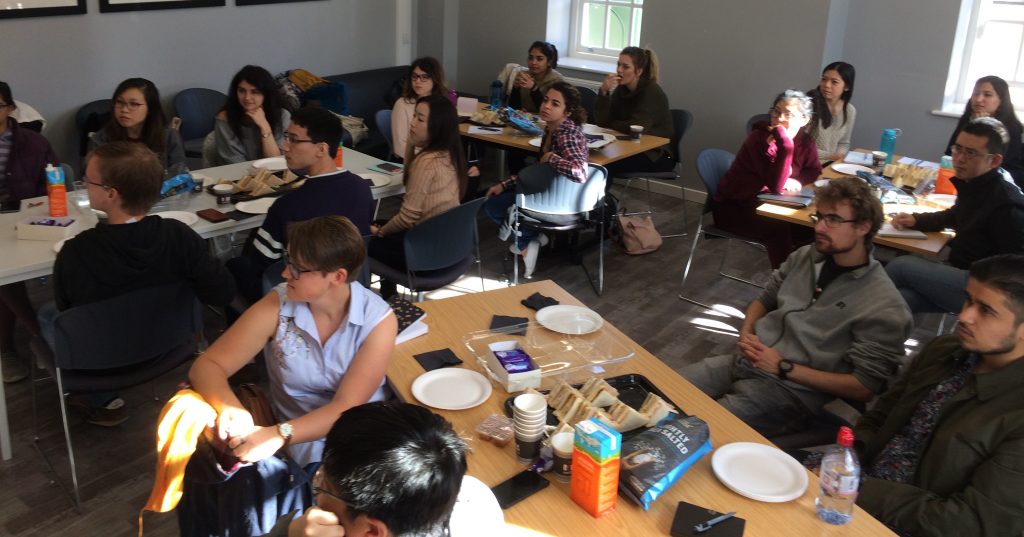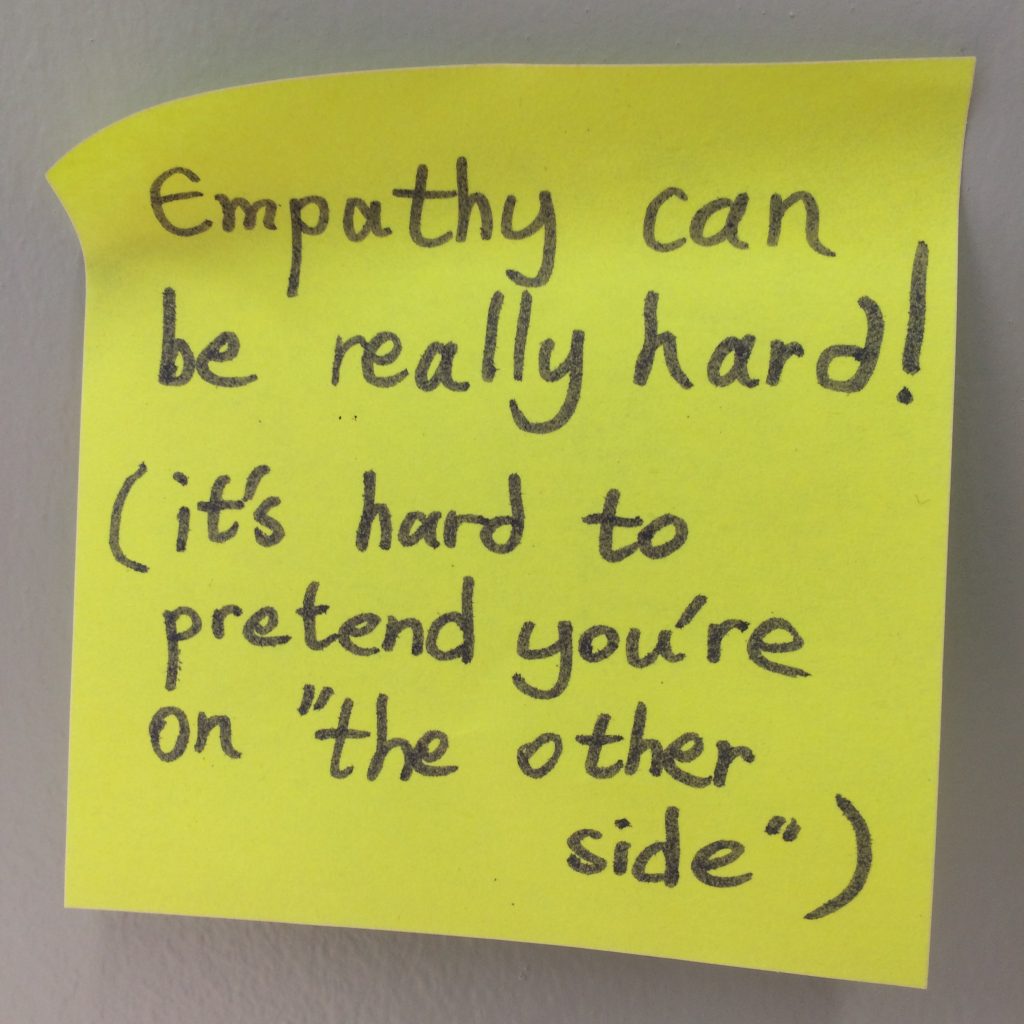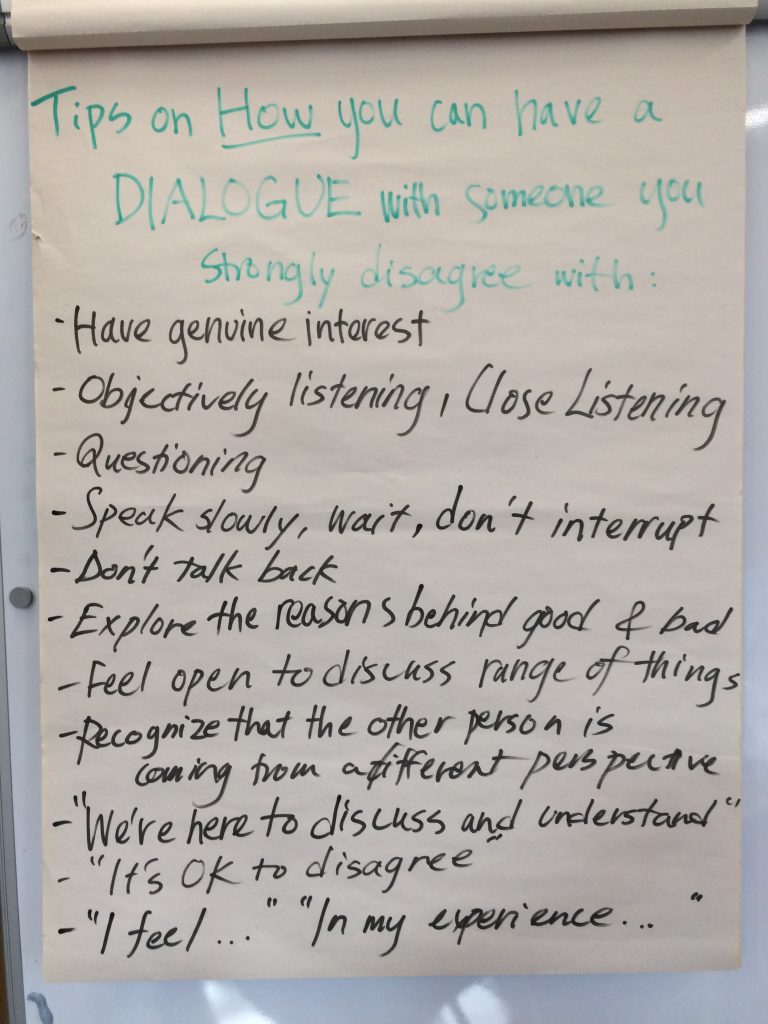By Farah Samuel and Nadin Hassan
Farah
GCP Workshop Friday October 6, 2017
The Ustinov Global Citizenship Programme held its first workshop for the session 2017-18 today at the Sheraton Park Community Room. The three hours long workshop was themed around creating space for positive dialogue. The participants included both the GCP scholars and volunteers. The workshop was conducted by Sahiko Ishihara from CEMUS, Uppsala University, with support from Rebecca Bouveng who directs the Ustinov Global Citizenship Programme.
The workshop was divided in four parts/activities. Since the main theme was around building or creating space for open dialogue, all the activities were designed to reflect positive dialogue.
The first activity was the icebreaker session that included all the participants to engage in a debate for two minutes and present their viewpoints followed by the second part of the icebreaker which was rather engaging in a dialogue. The activity concluded with the participants reflecting on the differences between debate and dialogue. Furthermore, the participants were asked to then recollect their experience of the two and formulate three essentials tips to a constructive dialogue.
In the second session, the participants were asked a few questions in response to which they had to either agree, disagree or be neutral. One of the questions was then picked as a discussion topic and the participants broke out into pairs to have a dialogue presenting their opposite point of views. This exercise helped participants practice a positive dialogue and allowed them to reflect on their discussions and present them to the audience.
The third activity was to engage the participants in a silent dialogue. This activity aimed at teaching the learners how to communicate in a written manner and through their body language. The activity involved a breakout session in which the participants were divided in to four groups and each group reflected on a question and made their comments. Whether they agreed or disagreed with each other, they only used the power of a pen to describe how they feel about their and others’ opinions on that particular thought. This activity resulted in the participants silently observing each other’s opinions and reflecting on them.
The workshop was concluded with the last activity which was a listening exercise wherein participants chose their partners (one each) and took two minutes to talk about their experience from today’s workshop and what they believe is their biggest takeaway. Towards the end of this activity, the partners appreciated each other for actively engaging with each other.
The entire day culminated in to positive reconciliation and the participants shared their expectations from the upcoming events and what they are looking forward to achieving through GCP.

Nadin
In this workshop, the GCP scholars had the opportunity to learn some valuable tips on communication from Sachiko, a visiting fellow from Uppsala University. We examined how to approach differences in opinions and controversial subjects through respectful dialogue. Through various interactive pair and team exercises, we learned techniques to use to foster a sense of empathy and spark some really interesting conversations.
“I really like the activity which makes us deeply understand the distinction between debate and dialogue. We always know that there are differences between the two, but the differences did not come so real and deep until that activity. I think I will try to bring more dialogue rather than debate in the future events.”
One of the highlights for me was an exercise in which we were asked to engage in dialogue about whether foreigners should have the right to vote, with a person of an opposing opinion. Taking such a controversial subject that touched on issues of citizenship, immigration, and civil rights and then forcing ourselves to slow down, actively listen to the other person, and explore the reasons behind our opinions was a difficult but rewarding experience. We were pleasantly surprised to see the richness of conversation that came out of it: some pairs ended up discussing the challenges in obtaining citizenship, acknowledging each other’s points, and coming to an agreement on voting rights; others discussed different cultural perceptions of voting and why they considered it to be a significant or insignificant part of civil society; and others learned to appreciate the differences of opinion while agreeing on some other fundamental points.
At the end, we took turns reflecting on our thoughts from the workshop. You would think after all of these discussions that we would all be pondering social and political issues, but actually, for many of us the take-away point was simply that the exercises brought us closer together as a group. We ourselves witnessed the profound effects that one can have simply by keeping an open mind, reaching common ground, and appreciating one another’s perspectives and experiences. Going forward, I hope that we can use what we learned in this workshop and plan some great projects for the students and greater community.
“I liked that we got to hear everyone’s views and ideas and got to know people. I think this workshop helped with regards to team work. We will be stronger as teams.”



